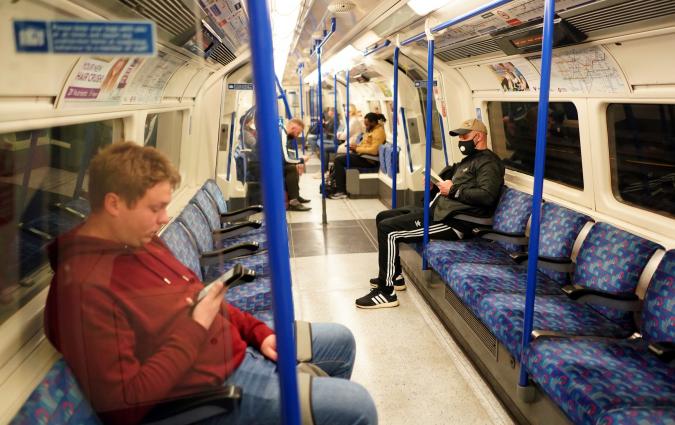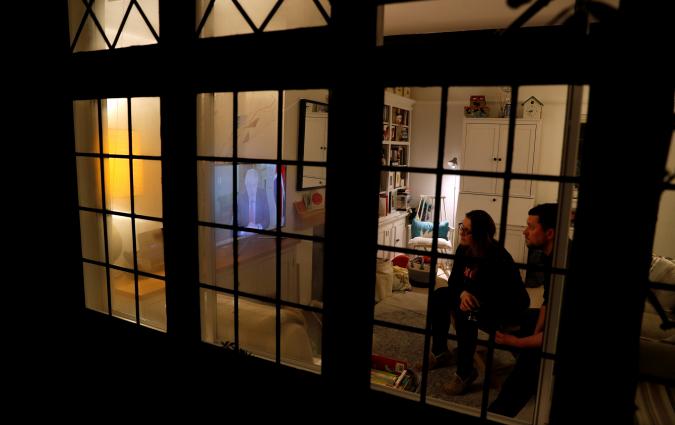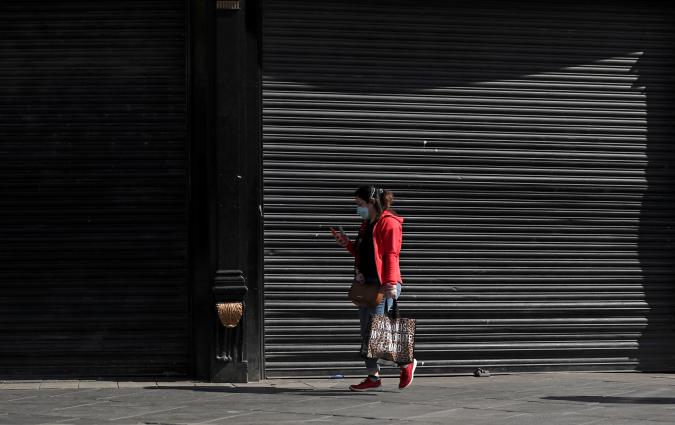In this piece
Trust in UK government and news media COVID-19 information down, concerns over misinformation from government and politicians up
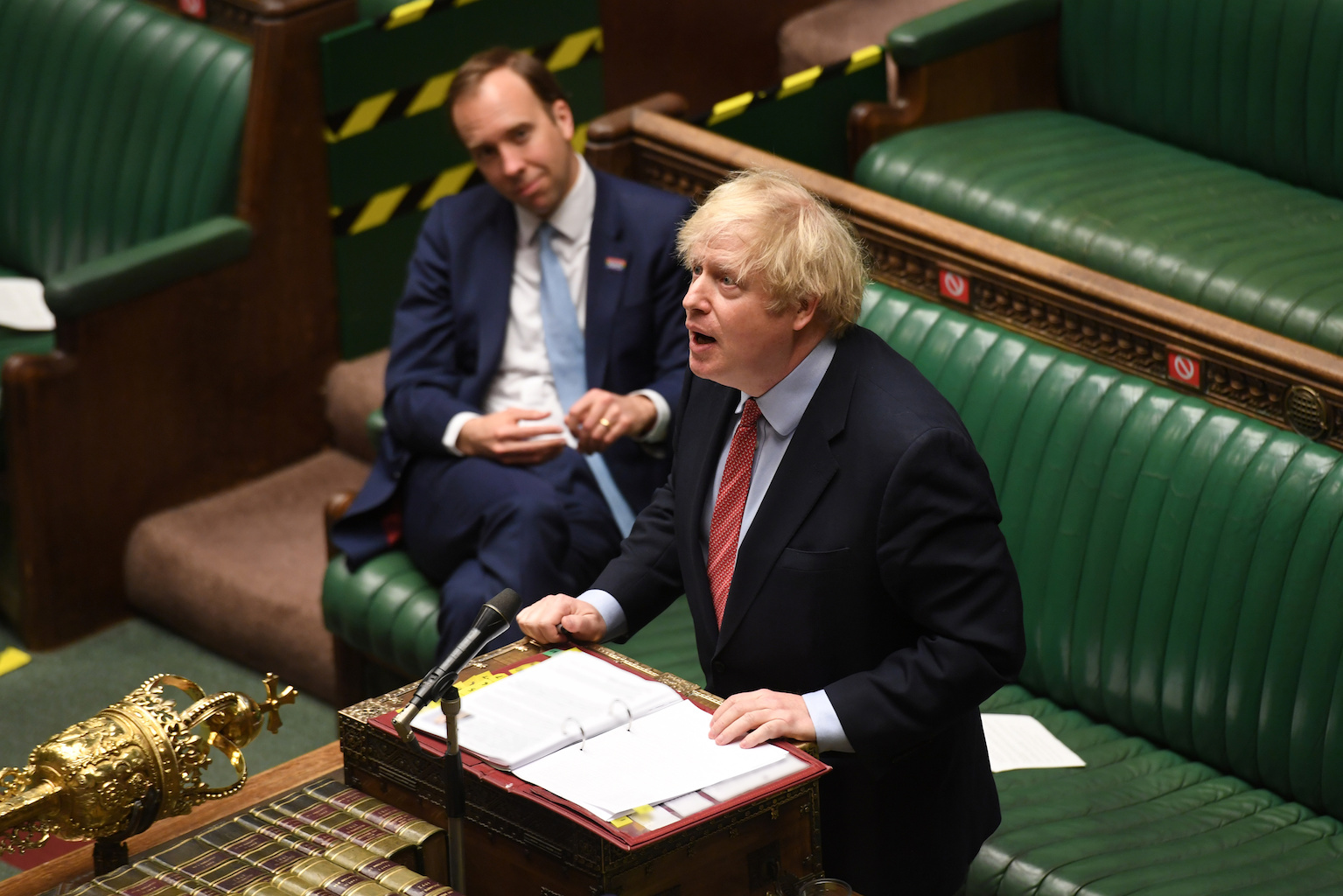
Britain's Prime Minister Boris Johnson speaks at the House of Commons amid the coronavirus disease outbreak, in London, Britain May 20, 2020. UK Parliament/Jessica Taylor/Handout via REUTERS
In this piece
Key findings | Overview | Findings | Footnotes | References | About the Authors | Funding acknowledgementsThis is the fourth factsheet of the UK COVID-19 news and information project.
DOI: 10.60625/risj-2mev-7795
Key findings
In this Reuters Institute's factsheet we examine people’s attitudes towards how news organisations, government and other institutions are responding to the coronavirus pandemic in the UK based on a survey fielded from 21 May to 27 May, with a focus on changes since the first wave of our survey was fielded from 10 April to 14 April.
We find that:
- Trust in the UK government as a source of information about coronavirus has declined substantially since April. 48% rated the government relatively trustworthy in late May, down from 67% six weeks earlier. Trust in news organisations is also down, from 57% to 46%. These drops are large and significant (as is the drop for politicians), and much more dramatic than the significantly smaller changes around other institutions.
- The decline in trust in the UK government has happened across the political spectrum, including among those on the right (down 10 percentage points), as well as among people in the centre (down 19 percentage points) and on the left (down 24 percentage points). Trust in news is much less politically polarised.
- We also find a significant increase in the percentage of people who say they are concerned about false or misleading information about coronavirus from the UK government (up 11 percentage points to 38%) and from politicians (up 9 percentage points to 40%). There has been no significant parallel change in the number of people who say they are concerned about false or misleading information about coronavirus from news organisations or other institutions.
- The percentage of people who say that the UK government is doing a good job responding to the coronavirus crisis is down 21 percentage points since April. The biggest drops are among people in the political centre (down 25 percentage points) and on the political right (down 21 percentage points). The drop for news organisations is eight percentage points.
- 27% think that the coronavirus situation in the UK is heading in the right direction (down from 35% in April), and 25% think the UK is on the wrong track (up from 10% in April). Just under half (42%) think the picture is mixed.
Overview
This is the fourth in a series of ten factsheets based on an ongoing online panel survey of representative sample of the UK population. The survey was designed by the Reuters Institute for the Study of Journalism at the University of Oxford to collect data on how people navigate news and information during the coronavirus pandemic and was fielded by YouGov. Ten waves will be fielded at two-week intervals, top-line findings from each will be published soon after in a factsheet, with more in-depth analysis to follow. More details about the project and the methodology can be found on the project website. The survey is a mix of tracking questions and specific questions fielded only in some waves.1
Findings
Trust in the UK government as a source of information about coronavirus has declined substantially since April, and trust in politicians and news organisations is also down. The decline is particularly noteworthy because it is much more pronounced than declines in trust in other institutions, or when compared to trust in ordinary people.
Some of the decline in trust may have been further exacerbated by the Daily Mirror and Guardian reporting on 22 May that Dominic Cummings, Chief Adviser to the Conservative UK Prime Minister Boris Johnson, had left his home in London in late March at the beginning of the lockdown to travel across the country at a point in time where a Number 10 Downing Street spokesperson had said he was in self-isolation due to symptoms of Coronavirus, a story that featured prominently in the news and on social media across much of the fieldwork period. The evolving story accounted for a significant share of the most read articles across online news sites including the BBC News, MailOnline, and the Guardian, and qualitative research demonstrates that much of the public has been following it (Cushion et al 2020).
But importantly, as we show below, the decline was well underway before this story broke, suggesting a much wider problem. (See Figure 1.) By late May, less than half the British public consider the UK government a relatively trustworthy source of news and information about coronavirus. The same holds for news organisations. Just a quarter consider individual politicians relatively trustworthy. The drops for all three sources are large and significant, and much more dramatic than the significantly smaller changes around other institutions and around trust in ordinary people.
Figure 1. Proportion that trust news and information about coronavirus from ____
Q10. How trustworthy would you say news and information about coronavirus (COVID-19) from the following is? Please use the scale below, where 0 is 'not at all trustworthy' and 10 is 'completely trustworthy'. Base: Total sample: 10-14 April = 2,823, 21-27 May = 1,771. Note: Trust = 6-10.
Trust in both news organisations and the UK government is down across the political spectrum, but views on the UK government are far more polarised along partisan lines (this is consistent with what we have found in previous research, e.g. Nielsen et al 2020).
We break our respondents into different political groups based on how they place themselves on a seven-point scale ranging from ‘very left-wing’, through ‘centre’, to ‘very right-wing’. Those that selected either ‘very left-wing’ or ‘fairly left-wing’ were grouped as being on the left, with the process mirrored to group those on the right. Those that identified as ‘slightly left of centre’, ‘centre’ and ‘slightly right of centre’ were grouped as centre.
This way, we can show that trust in news organisations, down 11 percentage points across the public at large, has declined substantially across political orientations, but especially among those on the right (down 19 percentage points from 55% in April to 36% in late May). (See Figure 2.)
These changes have also further polarised an already polarised perception of the UK government’s trustworthiness as a source of news and information about coronavirus. Political differences in views on news organisations, while growing, have changed less.
Figure 2. Proportion that trust news and information about coronavirus from ____ by political leaning
News organisations
UK government
Q10. How trustworthy would you say news and information about coronavirus (COVID-19) from the following is? Please use the scale below, where 0 is 'not at all trustworthy' and 10 is 'completely trustworthy'. Q1F. Some people talk about 'left', 'right' and 'centre' to describe parties and politicians. With this in mind, where would you place yourself on the following scale? Base: Left/Centre/Right: 10-14 April = 686/1,340/438, 24-28 April = 555/1,100/366, 7-13 May = 471/957/313, 21-27 May = 419/865/285. Note: Trust = 6-10.
Not only is trust down. We also find a substantial increase in the percentage of people who say they are concerned about false or misleading information about coronavirus from the UK government (up 11 percentage points since April) and from politicians (up 9 percentage points). There has been no significant parallel change in the number of people who say they are concerned about false or misleading information about coronavirus from news organisations or other institutions. (See Figure 3.)
Figure 3. Proportion very/extremely concerned about false or misleading information about coronavirus from ____
Q11. How concerned, if at all, are you about false or misleading information about coronavirus (COVID-19) from each of the following? Base: Total sample: 10-14 April = 2,823, 24-28 April = 2,291, 7-13 May = 1,973, 21-27 May = 1,771.
The UK government and politicians are now far more widely seen as a source of concern over false or misleading information than any other source we measure. Again, looking at concern over potentially false or misleading information from the government, there are some differences depending on people’s political persuasion.
While significantly more people on the political left (up 21 percentage points) and in the centre (up 12 percentage points) are concerned about false or misleading coronavirus information from the government than in April, levels of concern among people on the right are basically unchanged.
Figure 4. Proportion very/extremely concerned about false or misleading information about coronavirus from the UK government by political leaning
Q11. How concerned, if at all, are you about false or misleading information about coronavirus (COVID-19) from each of the following? Q1F. Some people talk about 'left', 'right' and 'centre' to describe parties and politicians. With this in mind, where would you place yourself on the following scale? Base: Left/Centre/Right: 10-14 April = 686/1,340/438, 24-28 April = 555/1,100/366, 7-13 May = 471/957/313, 21-27 May = 419/865/285.
As the number of daily confirmed hospital deaths from COVID-19 in the UK declined, but the country continued to have some of the highest recorded death rates in the world relative to population, people’s perception of whether the UK government and the governing Conservative Party were doing a good job responding to the crisis have also evolved.
Many institutions have seen some decline since April, with substantial declines for news organisations and even the (still widely admired) NHS, and erosion for ordinary people too. But the drop is far more severe for the UK government (down 21 percentage points) and the Conservative Party (down 17 percentage points). Among the institutions we track, only the Labour Party, under new leader Keir Starmer, has seen an increase in approval. (See Figure 5.)
Figure 5. Proportion that think ____ is doing a good job of responding to coronavirus
UK_Political. Do you think each of the following is doing a good job or a bad job in responding to the coronavirus pandemic? Base: Total sample: 10-14 April = 2,823, 21-27 May = 1,771.
Again, the political breakdowns around perception of news organisations’ and the UK government's response to the coronavirus crisis are interesting. (See Figure 6.)
As with trust, the decline in how people see news organisations is less severe than the decline for the government, and also less polarised (though it has dropped more on the political right than across the rest of the political spectrum).
The biggest drops for the government are among people in the political centre (down 25 percentage points) and on the political right (down 21 percentage points) rather than the political left (where already low approval declined by another 9 percentage points). Polarisation has not increased significantly.
Figure 6. Proportion that think ____ are doing a good job of responding to coronavirus by political leaning
News organisations UK government
UK_Political. Do you think each of the following is doing a good job or a bad job in responding to the coronavirus pandemic? Q1F. Some people talk about 'left', 'right' and 'centre' to describe parties and politicians. With this in mind, where would you place yourself on the following scale? Base: Left/Centre/Right: 10-14 April = 686/1,340/438, 24-28 April = 555/1,100/366, 7-13 May = 471/957/313, 21-27 May = 419/865/285.
Finally, our survey was in the field from 21 May to 27 May, a period in which confirmed hospital deaths from COVID-19 in the UK grew from 35,704 to 37,048 (Roser et al., 2020), and where there was considerable news coverage of the Cummings story, the fact that the UK's daily confirmed death rate relative to population was the highest in the world, as well as the government’s indication that the lockdown will be eased in June.
Overall, 25% of respondents thought that the coronavirus situation in the UK was on the ‘wrong track’, up from 10% in April. This figure is now roughly the same as those that think the situation is heading in the right direction (27%, down from 35% in April). Many people (42%) still see a mixed picture (See Figure 7).
Figure 7. Proportion that think the coronavirus situation in the UK is generally heading in the right direction
Q19. All in all, do you think the Coronavirus situation in the UK is generally headed in the right direction, or do you feel things are off on the wrong track? Base: Total sample: 1,774.
Support for the UK government’s handling of the coronavirus crisis rose substantially in the weeks before we started our polling in mid-April.2 This means that some of the patterns we describe here may be partly describing a fall from a peak in positive attitudes driven by a temporary ‘rally around the flag’ dynamic, rather than a fall from ‘normal’ levels.
However, the changes we document are stark. In April, a majority of the public rated the UK government a relatively trustworthy source of information about coronavirus, and most people said that the UK government was doing a good job responding to the pandemic (Fletcher et al 2020). Just six weeks later, that is no longer so.
Footnotes
1 We attempt to survey the same people in every wave. However, for a variety of reasons, some people do not complete every survey. Those that do not complete the most recent survey are not invited to respond in the next wave, meaning that the sample for each wave only consists of people that completed every previous survey. Because attrition is non-random, we separately weight each wave by age, gender, and region, so that we have a nationally representative sample in each.
2 https://yougov.co.uk/topics/international/articles-reports/2020/03/17/perception-government-handling-covid-19
References
- Cushion, S., Kyriakidou, M., Morani, M., Soo, N. 2020. ‘People Have Been Switching Off From Coronavirus News – But the Dominic Cummings Story Cut Through.’ The Conversation. Retrieved from https://theconversation.com/people-have-been-switching-off-from-coronavirus-news-but-the-dominic-cummings-story-cut-through-139568
- Fletcher, R., Kalogeropoulos, A., Nielsen, R. K. 2020. News Media Broadly Trusted as Source of Coronavirus Information, Views of UK Government Response Highly Polarised. Oxford: Reuters Institute for the Study of Journalism.
- Nielsen, R. K., Kalogeropoulos, A., Fletcher, R. 2020. UK Public Opinion Polarised on News Coverage of Government Coronavirus Response and Concern Over Misinformation. Oxford: Reuters Institute for the Study of Journalism.
- Roser, M., Ritchie, H., Ortiz-Ospina, E., Hasell, J. 2020. ‘Coronavirus Disease (COVID-19)’. Our World in Data. https://ourworldindata.org/coronavirus.
About the Authors
Richard Fletcher is a Senior Research Fellow at the Reuters Institute for the Study of Journalism and leads the Institute’s research team.
Antonis Kalogeropoulos is a Lecturer in Communication and Media at the University of Liverpool and a Research Associate of the Reuters Institute for the Study of Journalism.
Rasmus Kleis Nielsen is the Director of the Reuters Institute for the Study of Journalism and Professor of Political Communication at the University of Oxford.
Funding acknowledgements
Factsheet published by the Reuters Institute for the Study of Journalism as part of the UK COVID-19 News and Information project funded by the Nuffield Foundation. The Nuffield Foundation is an independent charitable trust with a mission to advance social well-being. It funds research that informs social policy, primarily in Education, Welfare, and Justice. It also funds student programmes that provide opportunities for young people to develop skills in quantitative and scientific methods. The Nuffield Foundation is the founder and co-funder of the Nuffield Council on Bioethics and the Ada Lovelace Institute. The Foundation has funded this project, but the views expressed are those of the authors and not necessarily the Foundation. Visit www.nuffieldfoundation.org.
- Read about the project
- Read the project's first factsheet
- Read the project's second factsheet
- Read the project's third factsheet

Published by the Reuters Institute for the Study of Journalism.
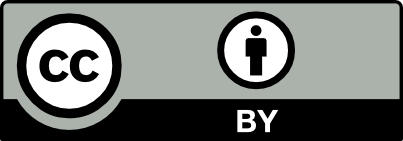
This report can be reproduced under the Creative Commons licence CC BY. For more information please go to this link.


